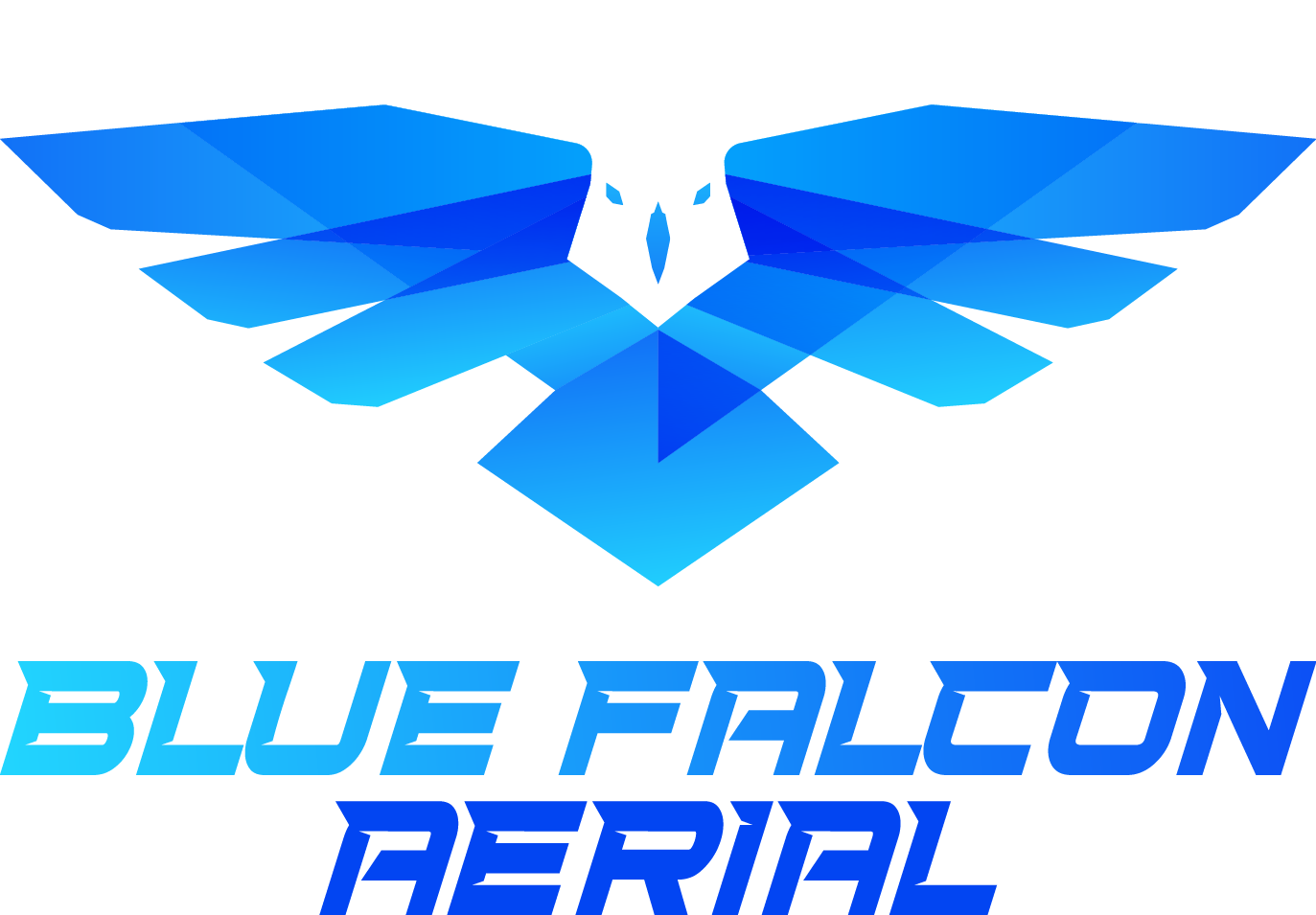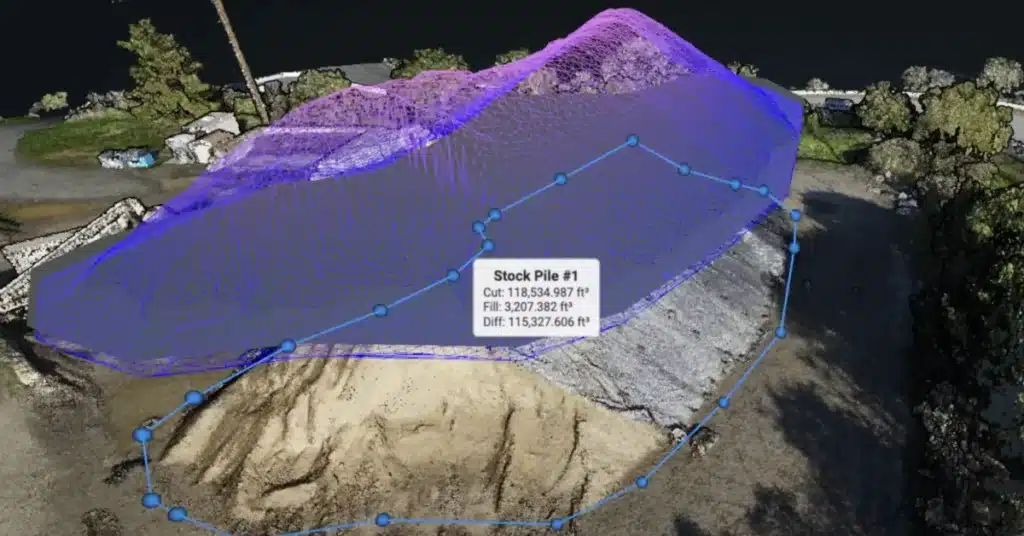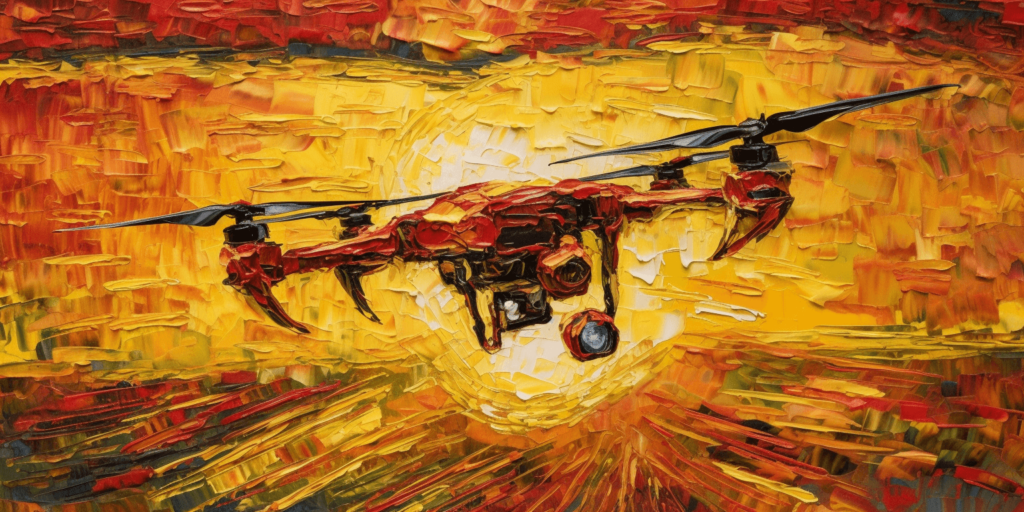Are you thinking of starting a drone business, but unsure of the costs involved? You’ve come to the right place! In this article, we will explore the key aspects of drone business startup costs and provide you with everything you need to know to plan your investment wisely. From equipment to legal requirements, and marketing to ongoing expenses, we’ve got you covered. Read on to discover how to successfully launch your drone business without breaking the bank.
Key Takeaways
- Types of Drone Businesses: Options include aerial photography/videography, drone inspections, mapping/surveying, agriculture/environmental monitoring.
- Initial Investment: Costs vary based on business type, covering drones, controllers, batteries, safety gear, and legal requirements.
- Essential Equipment: Includes professional-grade drones, controllers, monitors, batteries, charging systems, and safety gear.
- Legal Requirements and Costs: Insurance, FAA Part 107 exam, local/state regulations.
- Profitability and Earning Potential: Drone businesses can be profitable; earnings vary based on services and clientele.
- Training and Certification: Requires FAA Part 107 exam; drone pilot schools vary in length and difficulty.
- Legal and Regulatory Requirements: Compliance with FAA and local/state regulations is crucial.
- Marketing Strategies: Building a professional website, leveraging social media, and diversifying services.
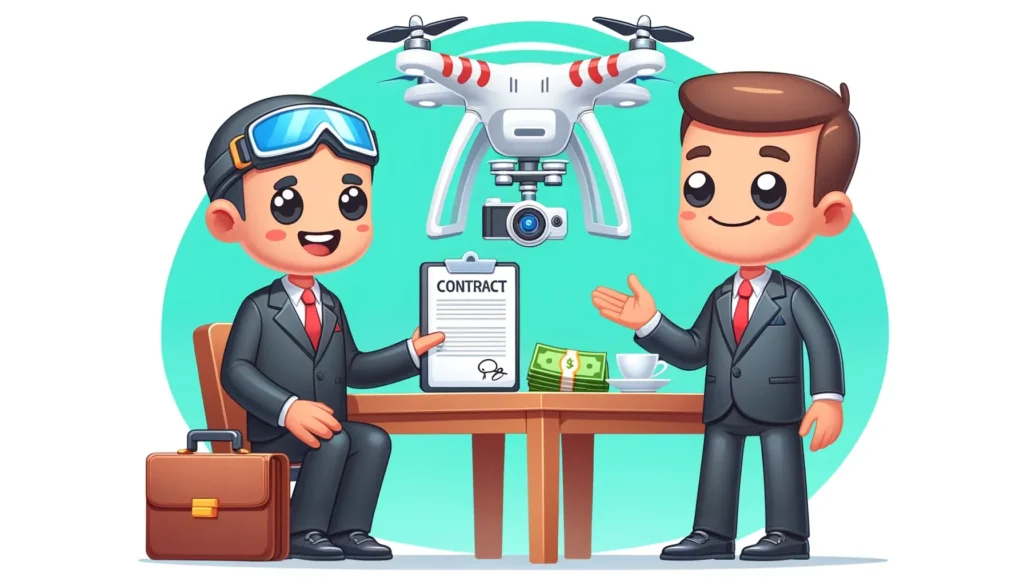
Types of Drone Businesses
Before diving into the startup costs, it’s essential to understand the various types of drone businesses you can venture into. Your choice will impact the equipment, training, and marketing strategies needed to succeed.
Aerial Photography and Videography
Aerial photography and videography are popular among real estate, weddings, and events. With the right equipment and editing skills, you can capture stunning aerial shots that clients will love.
Drone Inspections
Drone inspections are increasingly in demand for infrastructure, energy, and construction sectors. These inspections help assess the condition of buildings, bridges, wind turbines, and more, providing valuable data for maintenance and repairs.

Mapping and Surveying
Drones have revolutionized the mapping and surveying industry by offering high-resolution images and data at a fraction of the traditional cost. This service caters to land developers, urban planners, and environmental organizations.
Agriculture and Environmental Monitoring
Drones play a crucial role in agriculture and environmental monitoring, helping farmers assess crop health, optimize irrigation, and monitor livestock. They also support conservation efforts and disaster management by providing essential data and imagery.
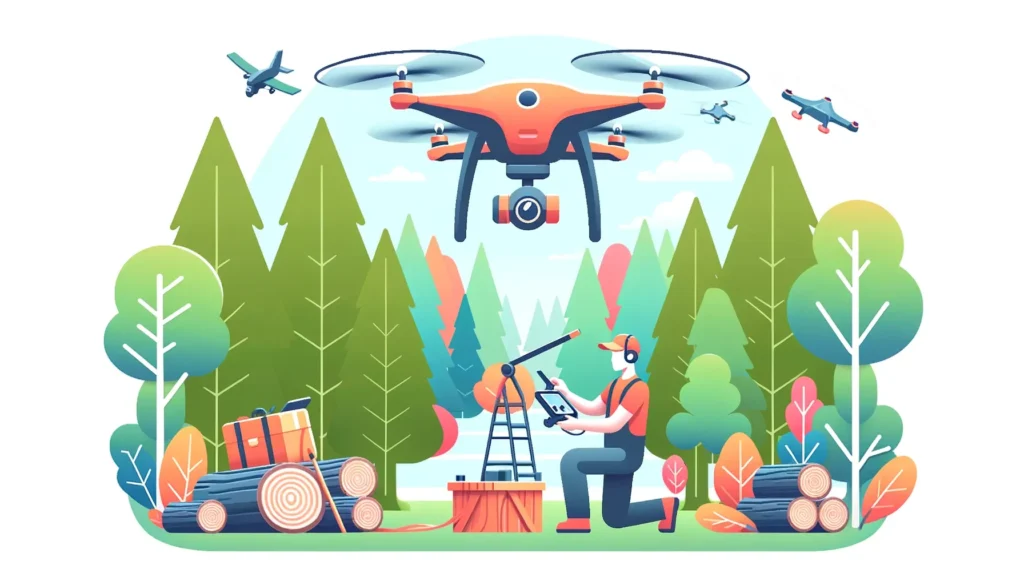
Initial Investment: How Much Money is Needed to Start a Drone Business?
Now that you have an idea of the various types of drone businesses, let’s delve into the startup costs involved in each.
Essential Equipment for Starting a Drone Business
The equipment you need will vary based on the type of drone business you choose. However, there are some essentials that all businesses will require.
Drones and Accessories
Invest in a high-quality drone that caters to your specific business needs. Expect to spend between $1,000 and $5,000 for a professional-grade drone. Accessories such as extra propellers, lens filters, and carrying cases are also necessary.
Controller and Monitors
A reliable controller is vital for precise drone control. Additionally, you may need a monitor or smart device to view real-time footage. Controllers can range from $300 to $1,000, while monitors or smart devices can cost between $200 and $800.
Batteries and Charging Systems
Invest in multiple batteries and a charging system to ensure uninterrupted operations. A single battery can cost between $100 and $300, while a charging system can range from $100 to $500.
Safety Gear and Tools
Safety gear, such as landing pads, safety vests, and fire extinguishers, is essential for responsible drone operations. Additionally, invest in a toolkit for field repairs. Safety gear and tools can cost between $100 and $500.
Legal Requirements and Costs
Starting a drone business requires compliance with various legal requirements, which come with associated costs.
Insurance
Liability insurance is crucial for protecting your business from potential accidents and damages. Premiums vary depending on coverage limits and risk factors, but expect to pay between $500 and $2,000 annually.
FAA Regulations and Licensing
To operate a drone business in the U.S., you must pass the FAA Part 107 exam and obtain a Remote Pilot Certificate. The exam fee is $160, and the certificate is valid for two years, after which you’ll need to renew it.
Local and State Regulations
Depending on your location, you may need additional permits or licenses to operate your drone business. Research your local and state regulations and factor in any associated costs.
Summary of Initial Investment
The total expenses for starting a drone business depend on the type of business you choose and the equipment and services you require. Below is a revised estimate of the initial investment needed for different drone business types, including LiDAR services:
Aerial Photography and Videography
- Drones and accessories: $2,000 – $6,000
- Controller and monitors: $500 – $1,800
- Batteries and charging systems: $200 – $800
- Safety gear and tools: $100 – $500
- Insurance: $500 – $2,000
- FAA exam and licensing: $160
- Local and state regulations: Variable
Total estimated cost: $3,460 – $11,260
Drone Inspections
- Drones and accessories: $3,000 – $10,000
- Controller and monitors: $500 – $1,800
- Batteries and charging systems: $200 – $800
- Safety gear and tools: $100 – $500
- Insurance: $500 – $2,000
- FAA exam and licensing: $160
- Local and state regulations: Variable
Total estimated cost: $4,460 – $15,260
Mapping and Surveying
- Drones and accessories: $4,000 – $15,000
- Controller and monitors: $500 – $1,800
- Batteries and charging systems: $200 – $800
- Safety gear and tools: $100 – $500
- Base Station and Rover: $5,000 – $10,000
- Insurance: $500 – $2,000
- FAA exam and licensing: $160
- Local and state regulations: Variable
Total estimated cost: $10,460 – $30,260
Agriculture and Environmental Monitoring
- Drones and accessories: $5,000 – $20,000
- Controller and monitors: $500 – $1,800
- Batteries and charging systems: $200 – $800
- Safety gear and tools: $100 – $500
- Insurance: $500 – $2,000
- FAA exam and licensing: $160
- Local and state regulations: Variable
Total estimated cost: $6,460 – $25,260
LiDAR Services
- Drones and accessories: $5,000 – $20,000
- LiDAR sensor: $20,000 – $250,000
- Controller and monitors: $500 – $1,800
- Batteries and charging systems: $200 – $800
- Safety gear and tools: $100 – $500
- Base Station and Rover: $5,000 – $10,000
- Insurance: $500 – $2,000
- FAA exam and licensing: $160
- Local and state regulations: Variable
Total estimated cost: $31,460 – $285,260
Keep in mind that these estimates are approximate, and your actual expenses may vary based on your specific needs, location, and the equipment and services you choose. Always conduct thorough research and create a detailed budget before launching your drone business.
Profitability and Earning Potential
Understanding the earning potential of your drone business is essential to gauge its viability and long-term success. In this section, we’ll discuss various aspects of profitability and potential earnings in the drone industry.
Can a Drone Business be Profitable?
A drone business can certainly be profitable, given the right combination of skills, equipment, and marketing strategies. The demand for drone services across various sectors, such as real estate, agriculture, inspections, and surveying, is on the rise. By positioning your business to address these needs, you can tap into a profitable market.
How Much Money Can You Make with a Drone?
The amount of money you can make with a drone business depends on factors such as the type of services offered, your pricing strategy, and the number of clients you can secure. On average, drone pilots can charge between $100 and $500 per hour, depending on the complexity of the project and the industry. Some specialized services, such as LiDAR or industrial inspections, can command even higher rates.
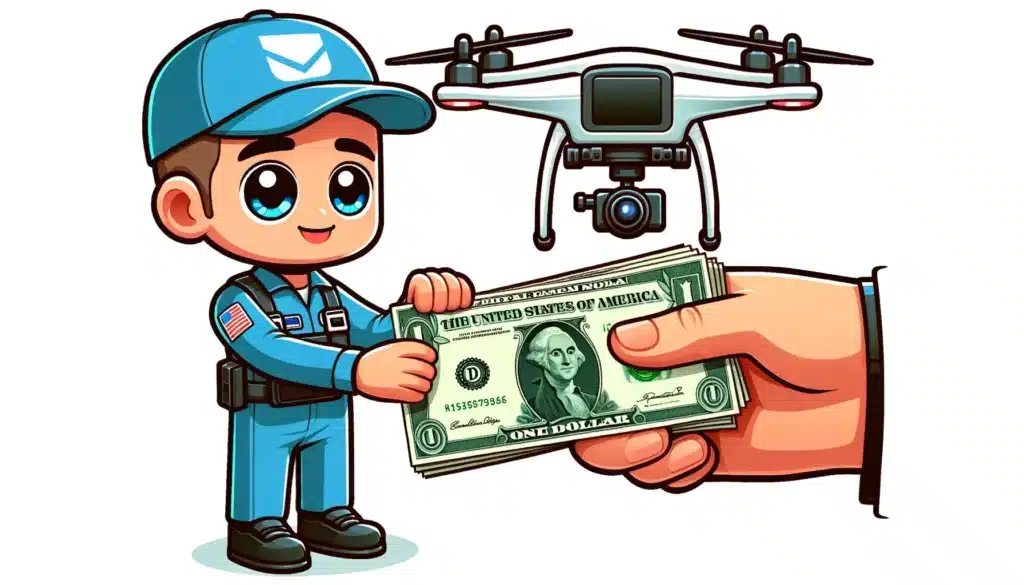
What is the Highest Paid Drone Operator?
The highest-paid drone operators typically work in specialized fields that require advanced equipment and extensive training, such as LiDAR mapping, utility inspections, or search and rescue operations. These professionals can earn over $100,000 per year, depending on their expertise, location, and clientele.
Are Drone Operators in Demand?
Yes, drone operators are in demand across various industries. The increasing adoption of drone technology for a wide range of applications has created numerous opportunities for skilled drone pilots. Some of the industries with high demand for drone operators include real estate, construction, agriculture, filmmaking, and infrastructure inspections.
Training and Certification
To become a professional drone operator and launch a successful business, you’ll need to acquire the necessary skills and certifications. This section covers the training and certification process for aspiring drone pilots.
How Long is Drone Pilot School?
Drone pilot schools vary in length, depending on the type of training and level of expertise they offer. Basic courses can take a few days to a couple of weeks, while more advanced or specialized training programs may last several weeks or months. It’s essential to choose a reputable drone pilot school that offers a comprehensive curriculum and hands-on training.
Is Drone Pilot School Hard?
The difficulty of drone pilot school depends on your background, experience, and the level of training you’re pursuing. For beginners, learning to fly a drone and understanding the fundamentals of aerial photography, videography, or mapping can be challenging but achievable with practice and dedication. Advanced courses, such as LiDAR or thermography, may require a deeper understanding of the technology and more extensive training.
How Hard is it to Pass the Drone Pilot Test?
The FAA Part 107 exam, required for commercial drone pilots in the U.S., covers various topics, including airspace classification, weather, and drone regulations. The test can be challenging for those unfamiliar with aviation or drone operations. However, with proper preparation and study, most aspiring pilots can pass the exam. Many drone pilot schools offer exam preparation courses to help students succeed.
How Much Does the FAA 107 Exam Cost?
The FAA Part 107 exam fee is $160. This cost is separate from any expenses associated with drone pilot school or exam preparation courses. The Remote Pilot Certificate, which you’ll receive upon passing the exam, is valid for two years. After two years, you’ll need to pass a recurrent knowledge test to maintain your certification.
Legal and Regulatory Requirements
Complying with legal and regulatory requirements is crucial to the success of your drone business. In this section, we’ll discuss some of the essential steps you need to take to ensure your business operates within the law.
Understanding FAA Regulations
The Federal Aviation Administration (FAA) oversees drone operations in the United States. As a commercial drone operator, you must follow Part 107 regulations, which include:
- Obtaining a Remote Pilot Certificate by passing the FAA Part 107 exam
- Registering your drone with the FAA
- Operating your drone within visual line-of-sight
- Not exceeding a maximum altitude of 400 feet above ground level
- Flying during daylight hours or civil twilight (with appropriate anti-collision lighting)
- Not flying over people or moving vehicles without a waiver
It’s crucial to stay updated on the latest FAA regulations and guidelines to ensure your business operates safely and legally.
Local and State Regulations
In addition to federal regulations, you may also need to comply with local and state laws governing drone operations. These regulations can vary and may include restrictions on flying in certain areas, such as near airports, parks, or schools. Always research and follow the drone regulations specific to your location.
Insurance and Liability
Obtaining appropriate insurance coverage is essential to protect your drone business from potential liabilities. Some clients may require proof of insurance before hiring your services. Drone insurance policies typically cover damage to your equipment, third-party property damage, and personal injury claims. Research the different insurance options available and choose a policy that best suits your needs and budget.
Marketing Your Drone Business
To make your drone business successful, you’ll need to effectively market your services and attract clients. In this section, we’ll discuss some strategies to help you promote your drone business and stand out from the competition.
Building a Professional Website
A professional website is the cornerstone of your online presence. Ensure your website showcases your portfolio, lists your services, and provides clear contact information. Optimize your website for search engines using SEO best practices to help potential clients find you online.
Social Media and Networking
Leverage social media platforms like Facebook, Instagram, LinkedIn, and Twitter to showcase your work, engage with potential clients, and build a network within the drone industry. Attend industry conferences, trade shows, and local business events to meet potential clients and collaborators.
Customer Testimonials and Case Studies
Gather testimonials from satisfied clients and create case studies to showcase your skills, equipment, and the value your services bring to clients. Share these success stories on your website and social media to build trust and credibility with potential clients.
Diversifying Your Services
Offer a diverse range of services to cater to various industries and client needs. By expanding your services, you can increase your chances of finding new clients and generating additional income streams. Consider branching out into related fields, such as aerial photography, videography, mapping, surveying, inspections, or agriculture.
By following these marketing strategies and continuously honing your skills, you can position your drone business for long-term success in a competitive market.
In conclusion, starting a drone business can be a profitable venture if you carefully consider the startup costs and plan your investment accordingly. We’ve covered the essential equipment, legal requirements, marketing strategies, and ongoing expenses that you need to be aware of when venturing into this exciting industry.
Ready for more valuable information? We encourage you to visit our comprehensive guide on building and growing your drone business at Soaring High: A Comprehensive Guide to Building and Growing Your Drone Business. This guide will provide you with in-depth knowledge and strategies to help you succeed in this competitive market.
If you need any drone services or have further questions, don’t hesitate to contact us at Blue Falcon Aerial. Our experts are here to help you achieve your business goals. Get in touch with us through our contact page.
